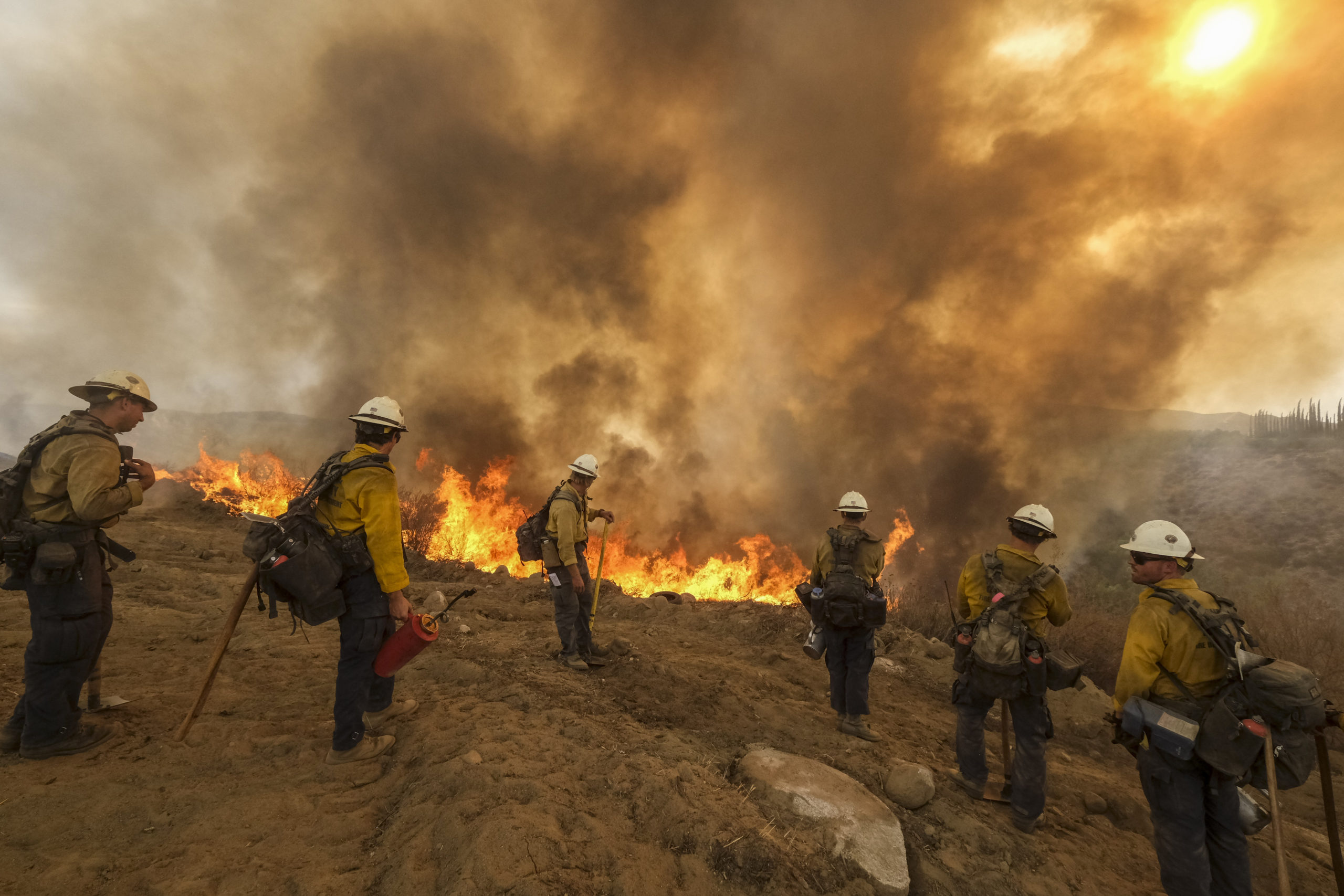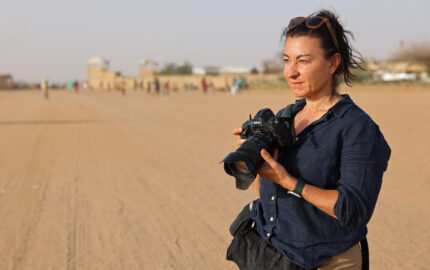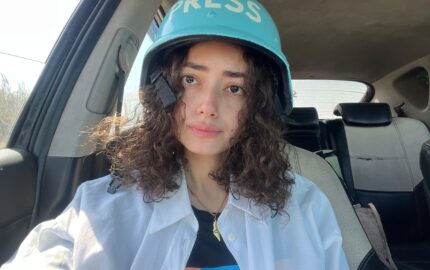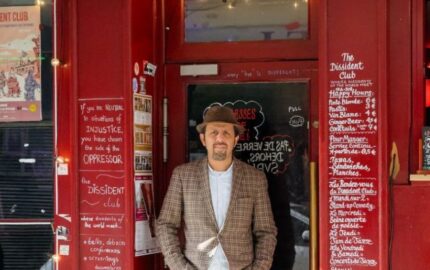National Public Radio, America’s hallmark public media organization, had a unique beginning. A people’s radio of sorts, NPR was made possible by a 1967 act of Congress in 1971, with the goal of providing educational radio to the country. Fifty years later, its mandate is the same — but the most essential topics have shifted.
In a year of unprecedented wildfires, drought, and storms, NPR is declaring climate change an essential topic. Through a combination of shifting and borrowing talent from its existing desks, as well as seeking grants for new hires, the organization is creating a dedicated desk to focus exclusively on climate — with more depth, breadth, and coordination than ever before.
The desk’s lead editor, Andrea Kissack, has worked in public radio for decades, covering a range of science topics from bugs to earthquakes to wildfires, and has been running NPR’s science desk for five years. Neela Banerjee, also initially hired for the science desk, has played a major role in NPR’s new tack and will become the deputy editor for the climate desk. Both she and Kissack have felt the impacts of climate change within their families. Banerjee lives with the stress of repeatedly making evacuation plans for her mother in Southeast Louisiana — an experience that has led her to think deeply about protecting the most vulnerable communities from climate disaster. Kissack’s mother was forced to evacuate her home during the last Southern California wildfire in Hemet.
Kissack and Banerjee walked me through the inception of NPR’s new desk as well as their fears and hopes for the future of our climate. The conversation has been edited for length and clarity.
What was the motivation for the climate desk and how did you make it happen?
Banerjee: People are definitely interested in covering climate at NPR. But the issue becomes that they have other things that they need to do as well. When we went to management [to propose the desk], we were like, if we want to do what the story demands, and if we want to do what our audience is asking for, which is more and more diverse climate coverage, then the best way to do this is to build out a desk.
Kissack: Neela was hired to help us coordinate and sharpen our climate coverage by being the sort of climate editor-at-large [at the science desk], and she made major inroads. But it was quickly obvious that to have a bigger impact and to really be more timely and more [of] service to our audiences, we needed to think about how we grow a team that can coordinate and build on our successful editorial relationship with our stations and really think about the possibilities of where that could go.
What kinds of stories will you focus on, and what will you offer that is different from NPR’s existing climate coverage?
Banerjee: What we really, really want to do is help build capacity at the member station level to report on climate. I think there's a recognition that for-profit media — newspapers and such — have atrophied in all sorts of towns and rural areas and cities. And public media can fill that space on various topics, and climate is one of them.
We are preparing for a position that will look at solutions. We just hired a climate and corporations reporter who looks at what companies are doing — good and dubious. We have two reporters who do great work in explanatory climate journalism, a lot of science. They’ve done accountability work around government agencies, and we are interested in expanding our coverage into climate and health.
If part of the goal is to put a renewed emphasis on climate change, how will you engage people? What do you hope this expanded coverage will offer the public?
Kissack: I think the fact that we have a long history of being storytellers, that is important in thinking about how we connect with people. I think storytelling really helps connect complex things with more people.
Banerjee: Among the threads that run through all of this is connecting the dots so that people understand, especially Americans who sometimes can think of climate change as something distant, that climate change is affecting them and how it's affecting them and what their options are.
Given the stakes of climate change, has the role of journalists covering it changed? Is there more room now for journalists to push for solutions?
Banerjee: I don't consider that if you write about climate or even if you do accountability work [around climate change] that you are any kind of activist. That’s not our role at NPR. I certainly don’t think that’s my role as a journalist. But I do understand how some journalists who cover climate have decided to champion certain solutions, certain narratives, because they feel the urgency of the situation. And there's plenty of room for all of that as long as people are relying on evidence and rigor to make particular arguments.
What is your greatest fear in terms of climate change?
Kissack: [During] the latest Southern California fire in Hemet, my mother had to evacuate. And the fire was so bad [that] the smoke got into the emergency room where my stepdad had to go. It got into the hospital because that hospital just did not have the equipment to handle that level of smoke. And I think that everybody probably can relate to that, too.
Banerjee: I see in the data how the people who get hurt or killed in so many extreme weather events are vulnerable populations, including the elderly and the disabled. So that's very real for me. It's like, how do we take care of the vulnerable people in our families?
More globally, what I really worry about is that extreme weather events will lead to a scramble for resources and enormous migrations that in turn will bring about anti-democratic reactions all over the world, and then you will not only see the harm to people that's occurring because of what's happening in the natural world, but layered on top of that, things that governments are doing that are going to harm people to protect their resources, to protect the wealthy, [and] to protect corporations.
Where do you hope we’ll be in 10 years on this issue and how can journalism help us get there?
Banerjee: In Neela’s nerdy climate world, more and more of us are driving EVs, including middle class people and people without a lot of money. Charging stations are everywhere. The way we're getting the critical minerals for EVs does not replicate the exploitation and the harms that occurred earlier with extraction industries.
One of the things [about] reporting on marginalized communities is that you want to show that they're suffering disproportionate harm and burdens. But at the same time, folks in those communities are not just victims, right? They have agency. So, I would love to see more and more stories about people in Bangladesh and Alabama, in Southern California and Louisiana and North Dakota, coming up with ways to adapt, and protecting their people, and governments and politicians supporting this with policies and money.
Q: Do you feel hopeful?
Banerjee: I'm not built to just curl up in a ball when there's a problem and try to ignore it, though I understand the impulse. I think that what I'm built to do is act, and journalism is the way to act.



